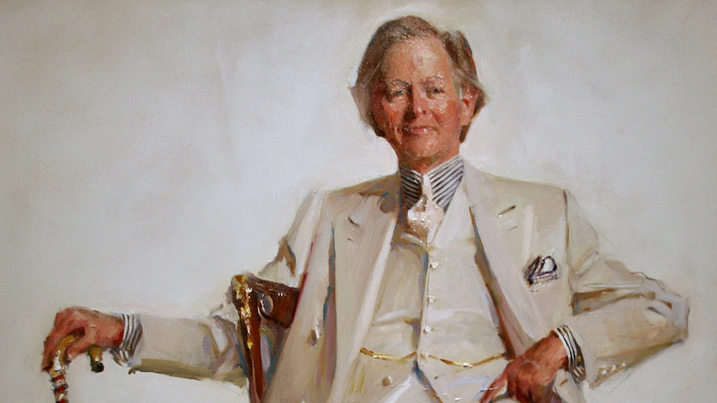Culture & Religion
All Stories
In Big Think’s series “How to Write Great Fiction,” 12 celebrated authors give writing tips. Now see how well you know each writer’s work and style.
By 2050, 10 percent of the world population will be speaking Spanish, spurred mostly by its growth in the United States, says Cuban linguist Humberto Lopez Morales.
Social networks have been identified as the key reason why young people from affluent backgrounds secure more jobs in popular professions than poorer peers.
Is being polite honest? Young adults aren’t quite sure. Being too polite or conscious of the feelings of others is a sign that you are out of touch with your core self, they say.
The best way to avoid a new Korean War is to deter future North Korean provocations. Reducing U.S. forces in the region doesn’t do that.
The special bond that often forms between people and both domesticated and wild animals maybe be, paradoxically, part of what makes us human, says Dave Munger.
Good metaphors are expansive; they compare something we don’t understand, to something we do. You see in a new light both the object of interest and the substrate you rest it on.
“A lot of people get upset at young people,” says Walter Mosley, “They say, ‘Young people aren’t living up to their potential. Young people are interested in things which are […]
Can an iTunes-style makeover bring the short story to new audiences? Ian Burrell of The Independent meets the authors and innovators who are selling small tales.
An oft-heard homily—”It’s the thought that counts”—is put more lyrically by the Chinese—”To walk a thousand li and present a swan feather; the gift is light but the friendship is solid.”
While self-awareness may be unique to humans, we share a different kind of consciousness—phenomenal consciousness—with many animals, says philosophy professor Ned Block.
At a time when digital shooting offers lower cost and greater artistic control, it’s fascinating to watch our most acclaimed filmmakers hasten the demise of actual film.
Why has the Red Bull energy drink company built up its very own sporting empire, organizing aerobatics competitions, sponsoring snowboarders and running a soccer team in New York?
Psychologists have discovered more “bad news” about human nature: If doing the wrong thing is easier than doing the right thing, most of us will just go “with the immoral flow.”
In primitive societies, a beard was often the sign of masculinity. These days politicians, at least, are rarely seen with one. What does a beard mean on a modern man?
Norris Church Mailer was principally known as the wife of the renowned American author Norman Mailer, but she was also a respected author in her own right.
Has American fiction become inseparable from its institutional context—the university—particularly embodied in the writing workshop? A new book examines the MFA’s influence.
Attracting children to classical music and ballet is the only way that these two performing arts can hope to have a future audience. And Barbie is the critical link.
Are Americans as car crazy as they were in the ’70s? There’s growing evidence that young people, for one, are less enamored of driving than their parents were.
Humanness and strangeness are tied together, tragically perhaps, but inextricably. So it is for our strangeness that we ought, like Hawthorne, to give thanks most of all.
We should think about terrorism not as a battle between Islam and the West but as a battle within Islam, says author Salman Rushdie. And video games might just be […]
Among the scientific concepts involved in cooking a turkey, controlling moisture is perhaps the biggest challenge, said John Marcy, a poultry-processing specialist at the U of Arkansas.
The scholar and performer gives the new movie “Burlesque” two thumbs down for claiming to portray “original” burlesque while ignoring the art form’s history and vocabulary.
Authenticity is an imprecise, continual assessment, prone to personal bias and human error—not exactly something to build a whole musical movement upon.
The humanities will continue, even if the discussion is between a carbon based intelligence and a silicon or virtual one. Curtis Carbonell says science doesn’t put the humanities at risk.
Polemic author James Frey has built a controversial writing factory, applying the model of an art studio along the lines of those run by Damien Hirst and Jeff Koons to the book world.
In an effort to translate the Bible, Protestant missionary groups have documented many endangered languages and now secular anthropologists are showing interest.
Americans still venerate marriage enough to want to try it yet nearly 40% think marriage is obsolete. Time Magazine explains its latest survey and the future of the American family.
One hundred and fifty years after his birth, Anton Chekhov’s plays have become almost as much a part of modern theater’s repertoire as Shakespeare.
The 20th century’s most revered man of letters was a staunch defender of tradition while being fiercely critical of capitalism, which drives the need for “the dull wage”.



